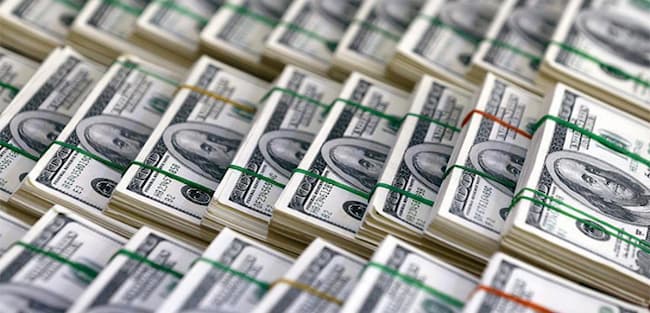The Central Bank of Nigeria (CBN) reported that Nigeria’s external reserves increased by $490 million in the week following the successful issuance of domestic dollar bonds by the Debt Management Office (DMO).
As of September 10, 2024, data from the CBN shows the reserves stood at $36.73 billion, up from $36.24 billion on September 2, 2024.
bolster the economy, the Nigerian Government issued $500 million on August 19, 2024, the initial tranche of the $2 billion domestic US dollar bond offering to investors.
During the hybrid roadshow of the domestic US dollar bond in Lagos on August 15, 2024, Wale Edun, the Minister of Finance and Coordinating Minister of the Economy, said the move would enhance foreign currency reserves.
The naira on Wednesday recorded 5.06 percent gain on the official foreign exchange (FX) market following an increase in dollar supply to $221.24 million in one trading day.
After trading on Wednesday, the naira appreciated by 5.06 percent as the dollar was quoted at N1,558.75 compared to N1,637.59 quoted on Tuesday at the Nigerian Autonomous Foreign Exchange Market (NAFEM), according to data from the FMDQ Securities Exchange Limited.
The Federal Government achieved a significant milestone by raising over $900 million from investors through a domestic dollar bond issuance. This landmark transaction, which was oversubscribed by 180%, underscores the increasing investor confidence in Nigeria’s economic prospects.
He stated the government aims to utilize these funds to stabilize the exchange rate, manage inflation, and ultimately reduce interest rates.
We are very pleased to announce the successful launch of this crucial domestic issuance of Federal Government U.S. dollar bonds to the investing public and other stakeholders. Under President Bola Ahmed Tinubu, the macroeconomic reforms have made bold and courageous strides to stabilize the economy while fostering innovation, creativity, and imagination among all economic actors, including those in the financial markets,” Edun said.
He included, “This historic issuance will provide essential foreign exchange liquidity and boost reserves, which will help stabilise the exchange rate, manage inflation, and eventually lower interest rates. It will also lay the foundation for increased investment by both domestic and foreign direct investors.”
More details later…
This article was written by Tamaraebiju Jide, a student at Elizade University













